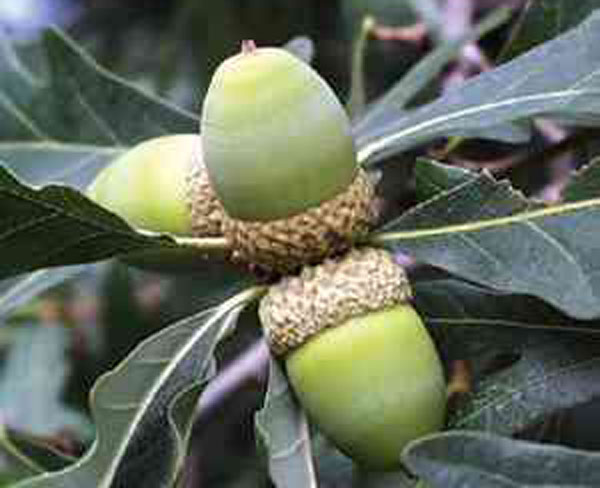
Question: My horses love eating acorns, but a friend of mine told me acorns are toxic to horses. Should I be concerned for the safety of my horses?
Response: Oak trees are commonly found throughout Minnesota and the U.S. Oak buds in the spring, and green acorn hulls in the fall, are associated with horse toxicity. Tannins have been reported as the toxic agent in oak buds and green acorn hulls. The concentration of tannins seems to decrease as leaves develop and the acorns mature and turn brown.
The toxic dose of green acorn hulls or oak buds in not known. However, animals ingesting large amounts of oak buds or green hull acorns for two days to more than a week may develop anorexia, constipation, diarrhea, colic, edema (swelling) of neck and abdomen, and polyuria (frequent urination). Liver damage rarely occurs in horses. Oak trees in horse pastures should not be cut down, but branches should be kept out of reach of horses (i.e., trimmed above their reach). Young or small oak trees should be fenced for protection and horses should be fenced out of areas where green hull acorns are plentiful.
Bottom line, green hull acorns pose a much greater threat to horses compared to mature or brown acorns. For more information on oak toxicity, click here.
Sign up for the University of Minnesota’s horse newsletters.


